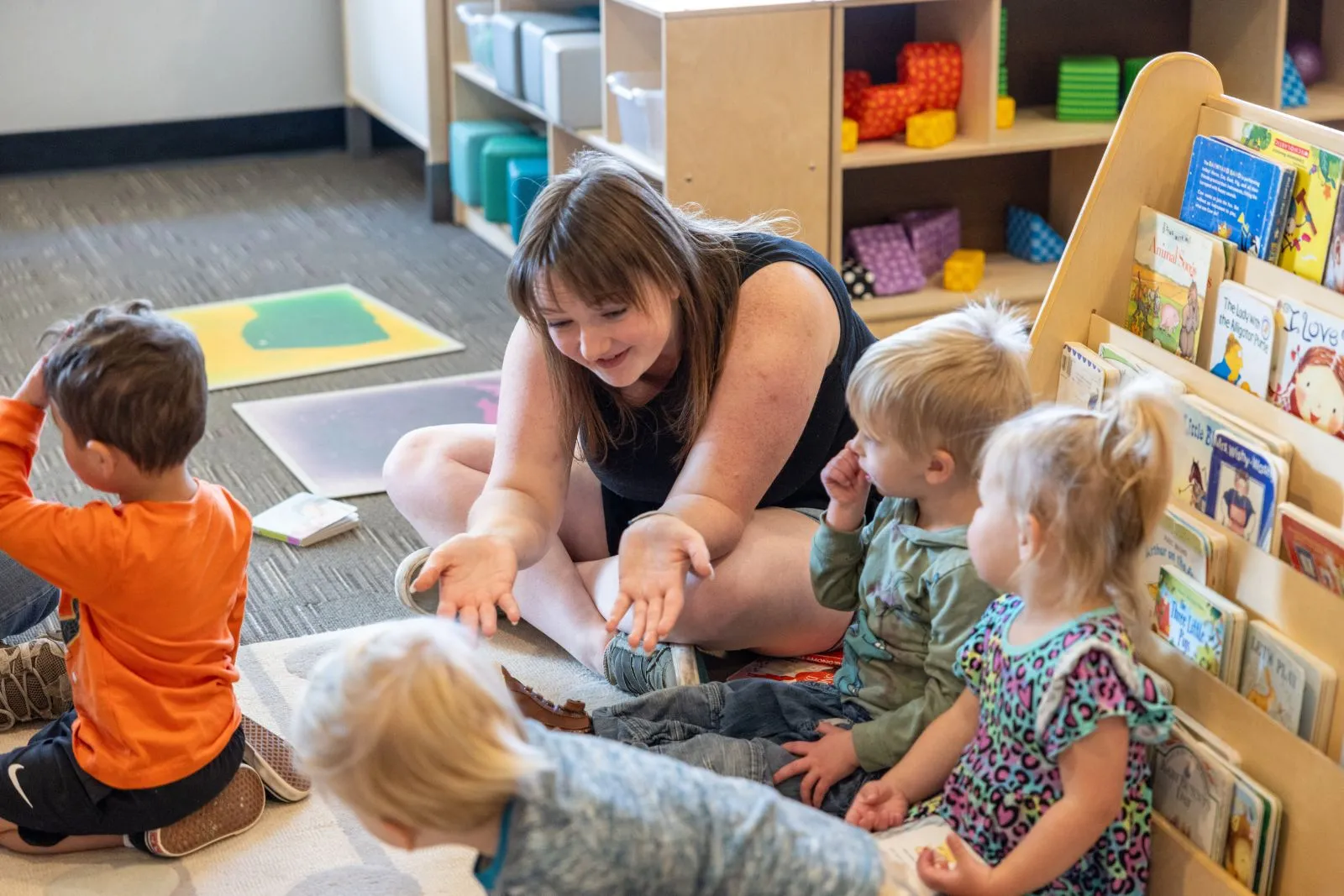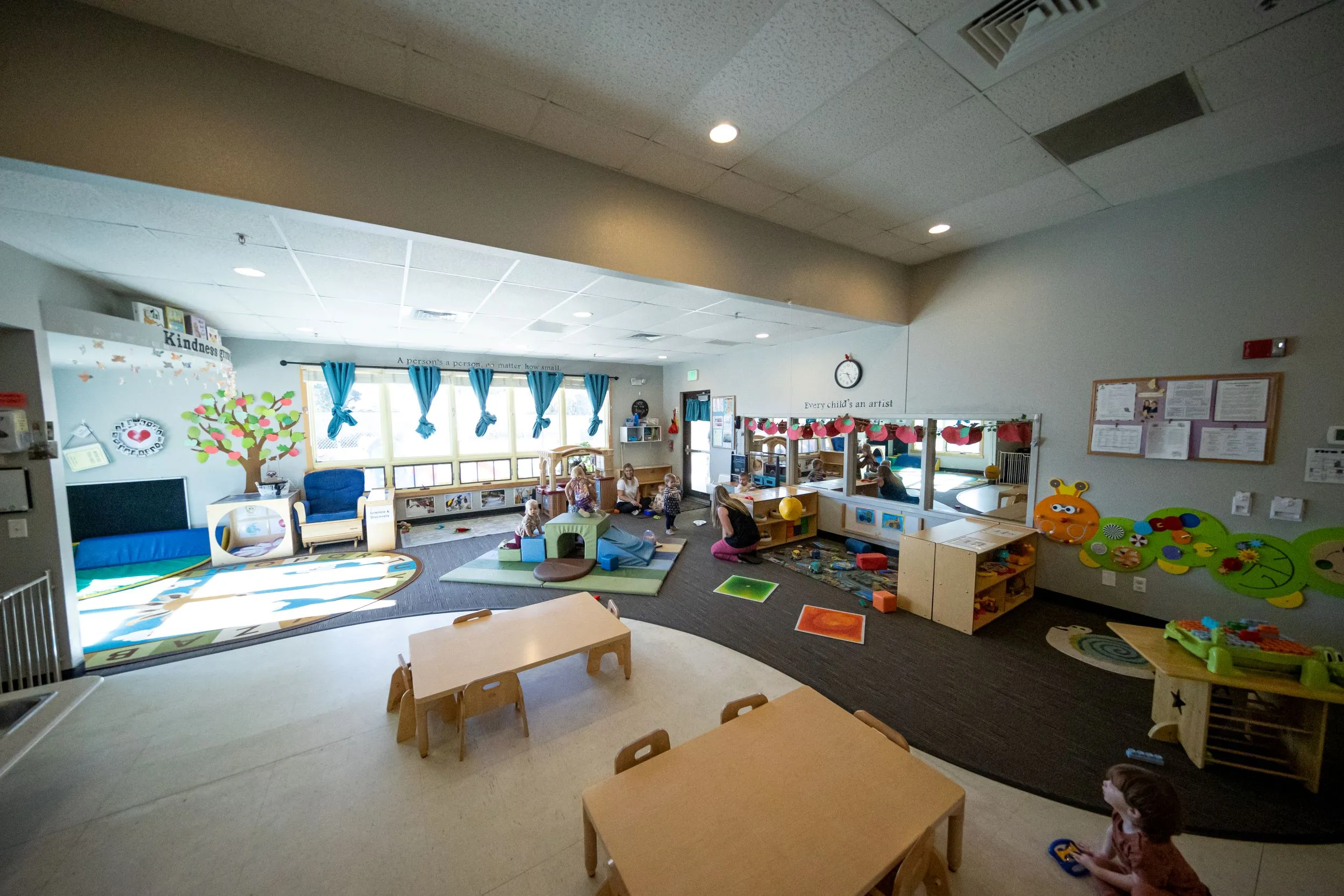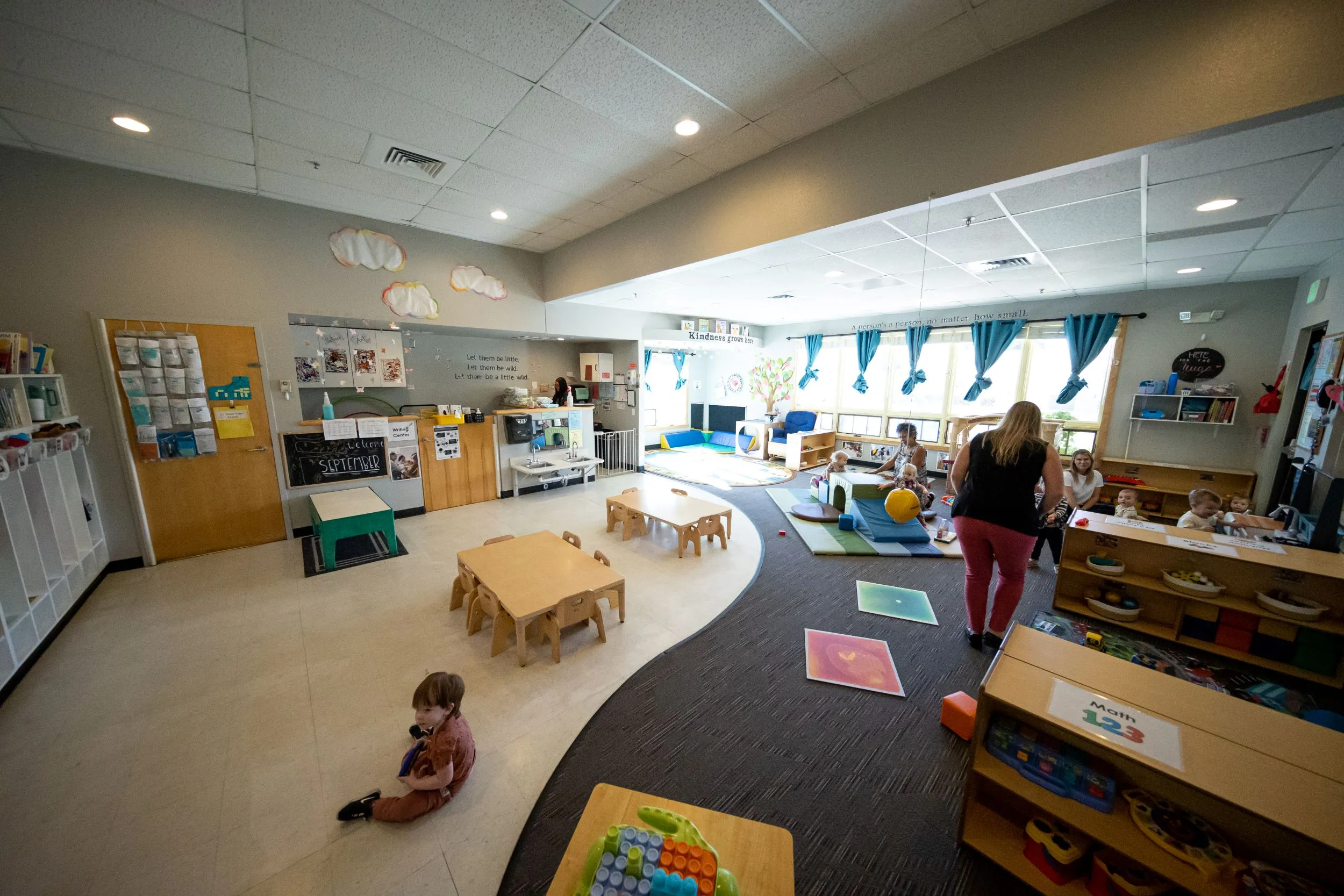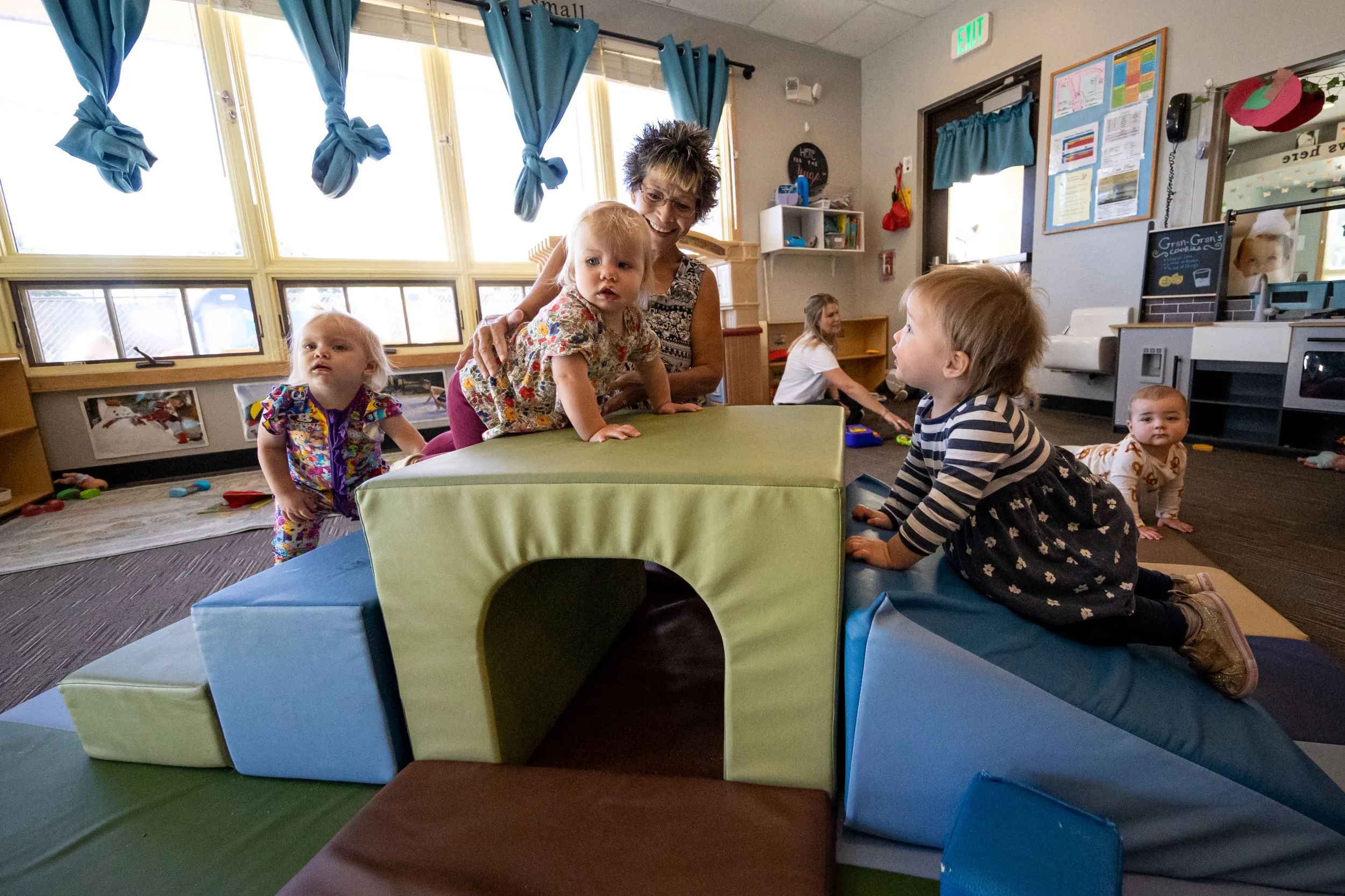
Toddlers
Building Secure and Caring Relationships

Our toddler program fosters socialization and independence while providing a safe, nurturing environment filled with opportunities for exploration and interaction. Our teachers recognize the profound impact of early relationships on a child's growth and work to nurture achievements in learning, language, social development, and self-regulation.
With the support and encouragement of their teachers, toddlers build the confidence to explore and take risks. They thrive in a safe, engaging play environment that promotes relationships, physical growth, and curiosity. Through these meaningful interactions, toddlers develop essential cognitive, language, motor, and social skills, setting the foundation for lifelong learning.
What your child will be up to
Activities and Routines

- Free-Choice and Learning Centers: Individualized activities like manipulatives, puzzles, art, and dramatic play that cater to developmental needs and interests.
- Circle Time and Music: Group time for stories, singing, dancing, and instrument play to foster social, literacy, and motor skills.
- Meals and Rest: Nutritious meals to build healthy habits and quiet rest periods for rejuvenation.
Toddler Ratios

Ages: 1 - 2.5 years old
Toddler 1 Teacher to Student Ratio: 1:3
Toddler 2 Teacher to Student Ratio: 1:5
Physical and Social Development

- Outdoor Play: Physical activities such as climbing, ball games, and water play to develop motor skills and coordination.
- Personal Care and Social Skills: Learning hygiene, self-care, emotional regulation, and positive interaction with peers.